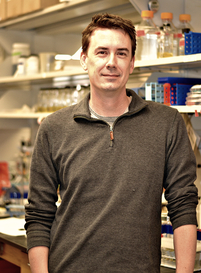BIOLOGY
Rice, UH win NIH award to build useful bacterial colonies
Rice synthetic biologist Matthew Bennett and his colleagues have won a four-year, $1.2 million National Institutes of Health grant to advance the art and science of creating custom-designed microbial colonies. 
The award to principal investigators Bennett and Krešimir Josić, a professor of mathematics at the University of Houston, and co-principal investigator Oleg Igoshin, a professor of bioengineering and biosciences at Rice, will enable the development of technologies like synthetic “tissues” that enhance soils or gut microbiomes, or self-healing coatings that continuously synthesize protective molecules.
The grant administered by the National Institute of General Medical Sciences will help them combine applied mathematics, biophysics, computational modeling, and experimental synthetic biology to improve their control of microbial colonies that form complex multicellular structures.
“This is an extension of a study to make asymmetric cellular differentiation happen in bacteria,” said Bennett, a professor of biosciences and of bioengineering. “That’s a property of stem cells, which give birth to new cells of a different type, like skin or pancreatic cells.”

 How to resolve AdBlock issue?
How to resolve AdBlock issue?